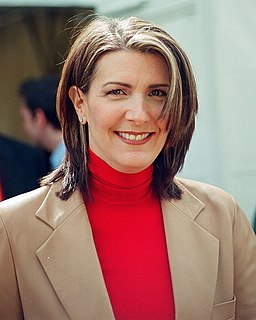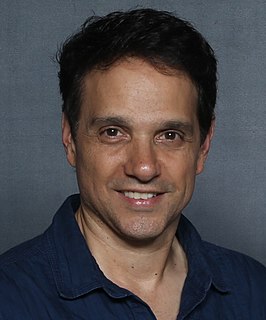A Quote by Bill Bryson
I would make a genuinely terrible guide. I can't remember things. I would get half way through telling a story or explaining something and I would get distracted. Oh, and I have absolutely no sense of direction at all.
Related Quotes
If we knew that we would meet the Lord tomorrow - through our premature death or through His unexpected coming - what would we do today? What confessions would we make? What practices would we discontinue? What accounts would we settle? What forgivenesses would we extend? What testimonies would we bear? If we would do those things then, why not now?
Well, let’s start with the maxim that the best writing is understated, meaning it’s not full of flourishes and semaphores and tap dancing and vocabulary dumps that get in the way of the story you are telling. Once you accept that, what are you left with? You are left with the story you are telling.
The story you are telling is only as good as the information in it: things you elicit, or things you observe, that make a narrative come alive; things that support your point not just through assertion, but through example; quotes that don’t just convey information, but also personality.
A good traditional conceptual instruction is what I got from my better professors at MIT. They would be at a chalkboard, and they would literally be explaining something and working through a problem, but it wasn't rote. They were explaining the underlying theory and processes and intuition behind it.
I would like to get out to the region in the Caspian sea. I would like to go there. I would like to get to Darfur. I would like to get to Khartoum in Northern Sudan. I would like to get to Zimbabwe. I would like to go back to North Korea, if I could. I would like to go to Yemen. I would like to get to Kashmir. Most of those destinations I will get to.
The only thing I can hope the viewer will get from the work is something about the structure of the work. It would be asking too much, I think, for them to get my exact intention. But if - through the construct of language, the way things are juxtaposed - there is some sort of disruption of the way you would normally go about reaching photographic images... if that is happening, that's fine.
Lucifer whispers that life's not fair and that if the gospel were true, we would never have problems or disappointments. ... The gospel isn't a guarantee against tribulation. That would be like a test with no questions. Rather, the gospel is a guide for maneuvering through the challenges of life with a sense of purpose and direction.
There are simple things which would make sense. Take, say, weatherization, which would make a big cut in the unemployment rate. That's the kind of work that plenty of people are quick to do, and it would save individual households money, and it would make a significant reduction in the threats of climate change. But something is holding it back: the sociopathic character of market systems.
Guys like Spielberg and Zemeckis and really anybody who is a storyteller-filmmaker today has studied Hitchcock and the way he visually tells a story. He was the master of suspense, certainly, but visually you would get a lot of information from what he would do with the camera and what he would allow you to see as the story was unfolding.






































